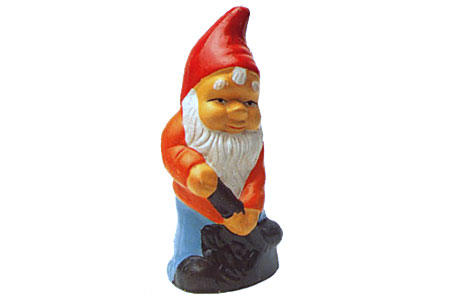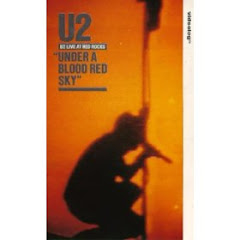On January 24, 2002, students at Juneau-Douglas High School were told they could leave class to go to the front of the high school to watch the Olympic torch make its way through the town. The torch was on its way to the Olympic Games in Salt Lake City. Joseph Frederick, a student at Juneau-Douglas High School, unfurled a banner that read "BONG HiTS 4 JESUS
 ." Not, perhaps, the statement that one would choose to make the focal point of a Constitutional battle, but it is what it is. One of the major cases in student free speech rights is Tinker v Des Moines Independent Community School Dist, 39 U.S. 503 (1969). In the Tinker case, students wore black armbands to school to protest the Vietnam War. The next day, wearing armbands was banned at the school. The wore the armbands anyway and were suspended. The Supreme Court held that student expression may not be suppressed unless school officials reasonably conclude that it will "materially and substantially disrupt the work and discipline of the school." Frederick's high school argued that its actions were legal because Frederick's banner advocated drug use. Frederick says
." Not, perhaps, the statement that one would choose to make the focal point of a Constitutional battle, but it is what it is. One of the major cases in student free speech rights is Tinker v Des Moines Independent Community School Dist, 39 U.S. 503 (1969). In the Tinker case, students wore black armbands to school to protest the Vietnam War. The next day, wearing armbands was banned at the school. The wore the armbands anyway and were suspended. The Supreme Court held that student expression may not be suppressed unless school officials reasonably conclude that it will "materially and substantially disrupt the work and discipline of the school." Frederick's high school argued that its actions were legal because Frederick's banner advocated drug use. Frederick says The Ninth Circuit held that the school's actions violated Frederick's rights because there was no "risk of substantial disruption." The Supremes reversed, holding that the banner advocated drug use and that Frederick was present at a school-sponsored activity, and therefore the school had the authority to confiscate the banner and suspend Frederick. That the banner could "reasonably regarded as encouraging illegal drug use," is ludicrous. There's an element to the majority's decision that smacks of "we'll show those pot smoking hippies."
The Ninth Circuit held that the school's actions violated Frederick's rights because there was no "risk of substantial disruption." The Supremes reversed, holding that the banner advocated drug use and that Frederick was present at a school-sponsored activity, and therefore the school had the authority to confiscate the banner and suspend Frederick. That the banner could "reasonably regarded as encouraging illegal drug use," is ludicrous. There's an element to the majority's decision that smacks of "we'll show those pot smoking hippies."The standard for free speech in a school is justifiably different than free speech in a public street. Fair enough. But as the dissent points out that one need not find otherwise to still conclude Frederick's First Amendment rights were violated. Does this banner advocate drug use? That seems like a stretch. In the dissent, Justice Stevens explains why that's important:
Frederick's credible and uncontradicted explanation for the message--he just
wanted to get on television--is also relevant because a speaker who does not
intend to persuade his audience can hardly be said to be advocating
anything.7 But most importantly, it takes real imagination to read
a "cryptic" message (the Court's characterization, not mine, see ibid., at 6)
with a slanting drug reference as an incitement to drug use. Admittedly, some
high school students (including those who use drugs) are dumb. Most students,
however, do not shed their brains at the schoolhouse gate, and most students
know dumb advocacy when they see it. The notion that the message on this banner
would actually persuade either the average student or even the dumbest one to
change his or her behavior is most implausible. That the Court believes such a
silly message can be proscribed as advocacy underscores the novelty of its
position, and suggests that the principle it articulates has no stopping
point.
And later, in my favorite section of the dissent:
If Frederick's stupid reference to marijuana can in the Court's view
justify censorship, then high school students everywhere could be forgiven for
zipping their mouths about drugs at school lest some "reasonable" observer
censor and then punish them for promoting drugs.
Another thing that confuses me about this is when standing on a public street became a "School sponsored activity." Frederick was late to school that day - he hadn't attended any classes, but went straight to the event. He was standing on a public street. A public street. Standing on a public street with a stupid banner during a school day is now restricted speech? Scary.
 By the way, the attorney who argued for the high school was none other than Kenneth Starr, who's been merrily chipping away at the Bill of Rights from his Luthor Lair, Pepperdine University Law School. Did I mention that Kenneth Starr is Paris Hilton's godfather? Ok, I made that list bit up, but seriously, folks, isn't that "vast right wing conspiracy" starting to make just a teeny-weeny little bit of sense now...? Are the pieces starting to fall into place...?
By the way, the attorney who argued for the high school was none other than Kenneth Starr, who's been merrily chipping away at the Bill of Rights from his Luthor Lair, Pepperdine University Law School. Did I mention that Kenneth Starr is Paris Hilton's godfather? Ok, I made that list bit up, but seriously, folks, isn't that "vast right wing conspiracy" starting to make just a teeny-weeny little bit of sense now...? Are the pieces starting to fall into place...?
The full text of the opinion is here.



No comments:
Post a Comment